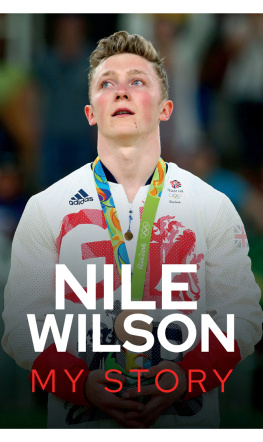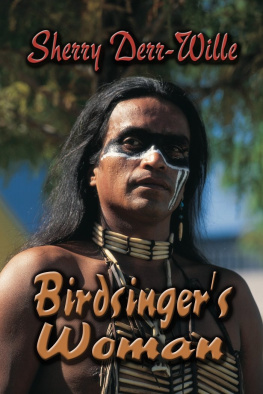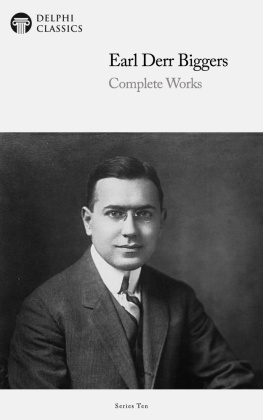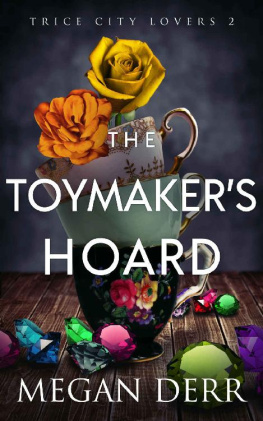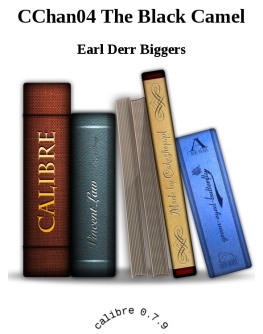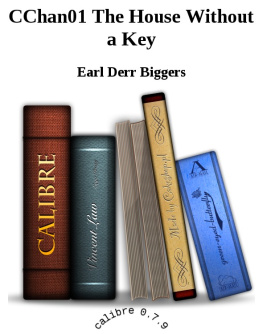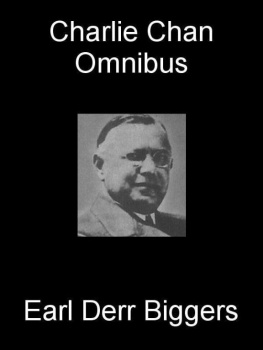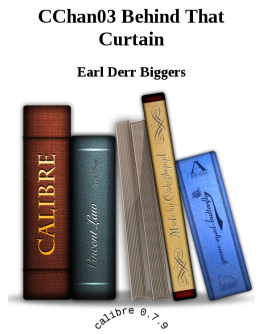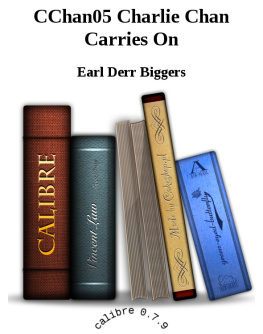Jennifer L. Derr - The Lived Nile
Here you can read online Jennifer L. Derr - The Lived Nile full text of the book (entire story) in english for free. Download pdf and epub, get meaning, cover and reviews about this ebook. year: 2018, publisher: Stanford University Press, genre: Politics. Description of the work, (preface) as well as reviews are available. Best literature library LitArk.com created for fans of good reading and offers a wide selection of genres:
Romance novel
Science fiction
Adventure
Detective
Science
History
Home and family
Prose
Art
Politics
Computer
Non-fiction
Religion
Business
Children
Humor
Choose a favorite category and find really read worthwhile books. Enjoy immersion in the world of imagination, feel the emotions of the characters or learn something new for yourself, make an fascinating discovery.

- Book:The Lived Nile
- Author:
- Publisher:Stanford University Press
- Genre:
- Year:2018
- Rating:4 / 5
- Favourites:Add to favourites
- Your mark:
- 80
- 1
- 2
- 3
- 4
- 5
The Lived Nile: summary, description and annotation
We offer to read an annotation, description, summary or preface (depends on what the author of the book "The Lived Nile" wrote himself). If you haven't found the necessary information about the book — write in the comments, we will try to find it.
The Lived Nile — read online for free the complete book (whole text) full work
Below is the text of the book, divided by pages. System saving the place of the last page read, allows you to conveniently read the book "The Lived Nile" online for free, without having to search again every time where you left off. Put a bookmark, and you can go to the page where you finished reading at any time.
Font size:
Interval:
Bookmark:
The Lived Nile
Environment, Disease, and Material Colonial Economy in Egypt
Jennifer L. Derr
Stanford University Press
Stanford, California
STANFORD UNIVERSITY PRESS
Stanford, California
2019 by the Board of Trustees of the Leland Stanford Junior University. All rights reserved.
No part of this book may be reproduced or transmitted in any form or by any means, electronic or mechanical, including photocopying and recording, or in any information storage or retrieval system without the prior written permission of Stanford University Press.
Printed in the United States of America on acid-free, archival-quality paper
Library of Congress Cataloging-in-Publication Data
Names: Derr, Jennifer L., 1976 author.
Title: The lived Nile : environment, disease, and material colonial economy in Egypt / Jennifer L. Derr.
Description: Stanford, California : Stanford University Press, 2019. | Includes bibliographical references and index.
Identifiers: LCCN 2018047940 | ISBN 9781503608672 (cloth : alk. paper) | ISBN 9781503609655 (pbk.) | ISBN 9781503609662 (epub)
Subjects: LCSH: Nile RiverHistory. | Aswan Dam (Egypt)History. | River engineeringEgyptHistory. | Irrigation engineeringEgyptHistory. | DamsEnvironmental aspectsEgyptHistory. | Irrigation farmingHealth aspectsEgyptHistory. | AgricultureEconomic aspectsEgyptHistory. | EgyptHistoryBritish occupation, 1882-1936.
Classification: LCC DT116 .D48 2019 | DDC 962/.04dc23 LC record available at https://lccn.loc.gov/2018047940
Cover design: Rob Ehle
Cover image: Cotton boll, CSIRO Science Image, via Wikimedia Commons and Creative Commons license
Typeset by Kevin Barrett Kane in 11/13.5 Adobe Garamond
For my mother, Margaret F. Jacoby
Contents
Acknowledgments
The work of this book has spanned continents and epochs of my life. While the book is recorded as mine alone, its writing would have been impossible without the support and care of more people than I can list in these short pages. Generous financial support for its research and writing was provided by the Fulbright-Hays Commission, the Social Science Research Council, the American Research Center in Egypt, the Mellon Foundation, the Institute for Historical Studies at the University of Texas, Austin, the Society of Fellows in British Studies at the University of Texas, Austin, the Humanities Institute at the University of California, Santa Cruz, the Committee on Research of the Academic Senate at the University of California, Santa Cruz, and the University of California Humanities Research Institute. The staffs and archivists at the Egyptian National Library and Archives in Cairo, the archives of the French Ministre des Affaires Etrangres in Paris and Nantes, the British National Archives, the Rockefeller Archive Center, the Wellcome Collection, the Institution of Civil Engineers, and the World Health Organization have also provided me with guidance and assistance. I would like to thank Lee Hilzik at the Rockefeller Archive Center, Nadia Mustafa at the Egyptian National Archives, and Reynald Erard at the archives of the World Health Organization in particular. Douglas Haynes, Omnia El Shakry, and Louis Warren are among those who generously gave me their time and feedback at a manuscript workshop that I hosted. Tom Pyun was my writing companion and fellow bureaucrat. Nathan Fonder, Will Hanley, Alan Mikhail, and Shane Minkin provided valuable company and conversation in the archives in Cairo. Corry Barreveld, Ren Barreveld, and Amil Khan housed me in faraway places while I did this work.
I have had the tremendous fortune of colleagues who have made life in academia a joy and an inspiration. Jon Anjaria, Allison McKim, Dina Ramadan, Damon Root, and Geoffrey Sanborn made my time at Bard College a pleasure. At the University of California, Santa Cruz, this group includes Mark Amengual, Alan Christy, Muriam Haleh Davis, Alma Heckman, Mark Massoud, Adam Millard-Ball, Greg OMalley, Thomas Serres, Juned Shaikh, and Elaine Sullivan. Emily Honig and Noriko Aso read and offered their feedback on early versions of the book. Mayanthi Fernando and Jenny Reardon have kept me fierce, and my other family, Dorian Bell, Vilashini Cooppan, Rohan Cooppan-Boyd, Jody Greene, Marc Matera, Samantha Matherne, and Maya Peterson, have kept me warm. Finally, Peter Limbrick, Lisa Rofel, and Gail Hershatter have been mentors and dear friends. Within the field of Middle Eastern history, there is inspiration all about. Zeinab Abul-Magd, On Barak, Beth Baron, Michelle Campos, Yoav Di Capua, Pascale Ghazaleh, Aaron Jakes, Toby Jones, Richard Keller, Shane Minkin, Ahmed Ragab, Nancy Reynolds, Sherene Seikaly, Ahmed Shokr, and Naghmeh Sohrabi have been valuable interlocutors. Gregg Mitman set this project on a different path and has inspired and challenged me along the way. Mara Naselli read and offered insightful feedback on early drafts of the chapters.
In many ways, my career as a Middle Eastern historian is a love letter to the city of Cairo, a place where all told I have spent a decade of my life. Shahinaz Ahmed, Elena Chardakliyska, Ibrahim Dawoud, Pascale Ghazaleh, Mahmoud Hamza, Nadine El-Hadi, Sebastien Moros, Iman Mosaad, Noha Rifaat, Sarah Rifky, Sue Salih, Ahmed El Shandawily, Waseem El Tanahi, and Sherif Zohny give the city a tangible human form to love and find joy in. Other dear friends have supported me in different corners of the world. They include Prithika Balakrishnan, Madhi Connors, Erin Decker, Alix Dunn, Guy Geltner, Courtney Gillespie, Brendan Harney, Shelly Makleff, Adina Saperstein, Tara Todras-Whitehill, and Elijah Zarwan.
There are those who have sustained me personally and intellectually throughout the writing process. I cannot imagine this book without them. They include Ulka Anjaria, Pablo Gmez, Aaron Jakes, Ahmed Ragab, Dina Ramadan, Naghmeh Sohrabi, Sherene Seikaly, and my chief of staff, Marc Matera. Ari Ariel, Sebastian Barreveld, Antje Barreveld, and Yasmine Ramadan have given freely of every possible form of support and care for as many years as I can remember. Christian Amorello has reminded me that the most promising beginnings come from an ending and has shown me a new path forward, one paved with love. I have learned much from Kate Wahl as an editor, and she has given generously of her time and wise counsel. My familyAnnette Jones, Walter Derr, Kerry Derr, Robert Jacoby, and Julie Stratton Jacobyhave supported me in every way they know how. Joel Beinin plucked me out of a seminar my junior year at university and has been a mentor, a sounding board, and a friend ever since. Finally, this book is dedicated to my mother, Peggy Jacoby. It is with great sadness that I finished this project when she was not here to see it to its end. It is to her that this book is dedicated, as through her capacity to weather pain with boundless love and joy she opened for me a different world.
Note on Transliteration
I have followed the International Journal of Middle East Studies System for the Transliteration of Arabic words, simplified by the omission of diacritical marks except for the hamza glottal stop () and the letter ayn (). Common and well-known spellings for places (Luxor) and names (Nasser) have been retained. The names of smaller towns and village for which there is no agreed-on English-language spelling been transliterated according to the system outlined above, with definite articles in the name of said town or village removed. I have preserved the English spellings of the Arabic names of authors of English-language texts as recorded in the text; those of company names correspond to official documentation.
INTRODUCTION
A River, Remade
Next pageFont size:
Interval:
Bookmark:
Similar books «The Lived Nile»
Look at similar books to The Lived Nile. We have selected literature similar in name and meaning in the hope of providing readers with more options to find new, interesting, not yet read works.
Discussion, reviews of the book The Lived Nile and just readers' own opinions. Leave your comments, write what you think about the work, its meaning or the main characters. Specify what exactly you liked and what you didn't like, and why you think so.

